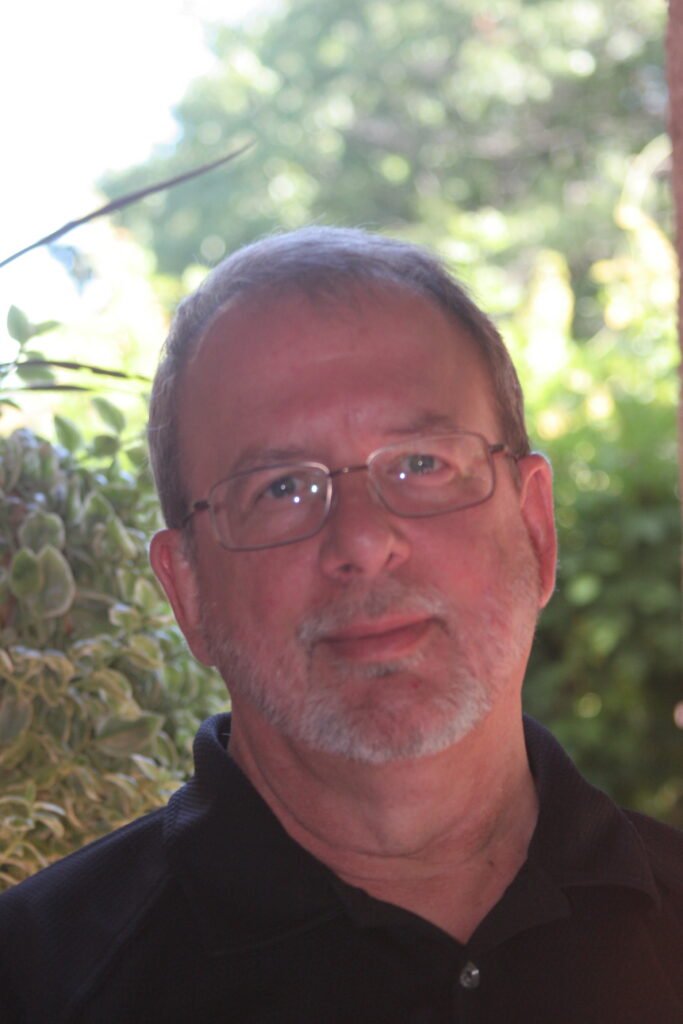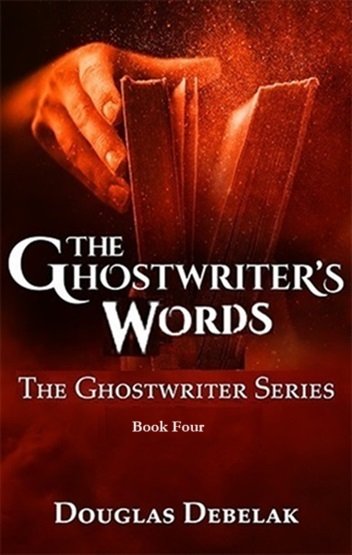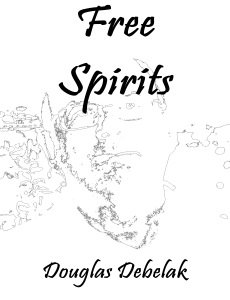
Titles by Douglas Debelak
Biography of Author Douglas Debelak
Biography of Author Douglas Debelak
I would much prefer to have my biography written by someone else and, therefore, presented objectively in the third person. But, until I can afford to hire a publicist or persuade a friend who knows me well enough and whom I trust to be honest, we are both stuck with me and a clearly subjective and highly biased effort. In consideration of such biased subjectivity, I believe the most honest approach I can offer is to proceed in the first person.
I don’t remember being born, nor do I trust what purport to be my earliest childhood memories as legitimate. Nor, at times, do I trust memories from events that took place only moments ago much more. So, I can only conclude that what I am about to present will be as fictional as the novels I’ve written. Then again, isn’t anything ever written by a human being filtered through their imaginations if only to seek out the words and phrases to express best what we believe to be true? Or we hope you will believe it to be true.
Another event I don’t remember, but according to my mother, I must have been a natural-born storyteller even as a child, since I persuaded the rest of my kindergarten class that I could tell a better story than the teacher. I apologize for not remembering whether I ever told the story I promised, let alone recall what that might have been. I suspect I intended to make it up, which is what I do. The teacher, being new and flustered, told my mother that she didn’t know how to handle me, and, to her shock and horror, for the young woman who did not believe in corporal punishment, my mother promptly demonstrated what she called “butt shock therapy.” Whatever the teacher’s beliefs, I can bet that I never disrupted her class again, promising a better story.
Thanks to my inability to pay attention in school, being bored, and having more interesting things floating through my imagination, I repeated first grade. Even a year behind, I was shorter and skinnier than my classmates, and I wore glasses, marking me as a natural target for bullies. Add a mouth that, as I was to discover, would have been far more clever if I’d learned to keep it shut, since, together with the preceding, it was not a good combination for navigating grade school unscathed, with the unsurprising consequence of regularly suffering one of my classmates’ version of “butt shock therapy.”
Like other bored-to-death, imaginative children, I was not a good student, spending more time daydreaming of becoming a professional athlete, which, being short and skinny and far from elitely athletic, was unlikely ever to happen. However, for some unknown reason, while not deluding myself about my future in professional sports, I also read an entire set of encyclopedias, as well as many of the other books in our home. I must have read The Old Man and the Sea half a dozen times before I was twelve. I can’t begin to calculate how many other titles, but a decent enough swathe through the classics, that, despite my best efforts to make no effort, I didn’t emerge from grade school illiterate and uneducated; which also didn’t go unnoticed by my mother or other adults in my life, who had been regularly teeling me that if I’d only apply myself, I could be anything I wanted to be. More on that later. So, fast forward through junior and senior high school; to keep this brief, I managed to graduate, if barely.
With a red-flag combination of poor grades and high test scores, I was unsurprisingly rejected by nearly every college to which I applied, until finally receiving the acceptance letter from the state school across the state line, where, no disparagement intended to an excellent school, most of my fellow underachieving classmates were also enrolled. Probably for no better reason than being raised in a religious family, I initially entered college with the notion of becoming a Presbyterian pastor; however, I question my commitment, remaining no more inspired than I’d ever been, and, like my fellow underachieving classmates, I might as well have majored in beer drinking and playing cards in the student union. After a lackluster year and a half, I dropped out, found a job in a factory, and got married. Then, watching a co-worker stare vacuously into space one afternoon at work, I had the epiphany: If I didn’t start doing something dramatically different, I was looking at myself in fifty years. Working in the factory would be my entire life, the prospect of which I found far more boring than school had ever been.
I reenrolled at the state school across the state line, where most of my underachieving former classmates had also dropped out or had their epiphanies. Taking my studies seriously for the first time, a class in philosophy, with a marvelous professor, led me to question every belief I had previously held, freeing me from an enormous weight. Shortly after, I switched my major from religion to philosophy, where questions, at least then, were encouraged rather than branded as a lack of faith as they’d been at church. I went on to receive a degree in philosophy, graduating with honors, and was accepted into a PhD program at Northwestern University.
First, I discovered ‘Great Expectations’ in Evanston, at the time one of the best philosophy bookstores in the country. During my undergraduate years, I’d subconsciously compiled an extensive list of titles to read, and I found enough of them that I suddenly realized I couldn’t complete my list within my lifetime if I sat and immediately began reading. The PhD program did focus on Phenomenology and Existentialism, so, if nothing else, I’d learned the definition of ‘finitude.’
Second, all I’d wanted to do, perhaps all I’d ever wanted, was to discuss ideas with other intelligent people whom I found, to my disappointment, did not care to share theirs, for fear they’d be stolen before they had an opportunity to publish. And here I’d thought the whole purpose of grad school was discussing ideas to determine whether any had enough merit to pursue further, or rethink, or look elsewhere. And what were those ten percent fortunate enough to find employment in their field going to do with a classroom full of students anxious to discuss ideas? Talk about a den of potential thieves. In retrospect, I suppose, if I’d had the patience to endure, I might have enjoyed a den of thieves anxious to discuss whatever ideas I cared to share. And if any were worth stealing, go with my blessing. Wasn’t that the point?
I returned home, disillusioned and ashamed of my failure, and after a period of depression, I decided to try writing, which seemed a logical alternative for speculative thinking, sharing ideas, and asking “What if…?” Learning that I was to become a father, after several twists and turns, and a daughter following my son born nearly three years before her, I decided writing software – which I’d taught myself while developing a program for running YMCA’s swimmeets – was a more practical, and profitable, way to support a family than working at a recroom desk, or, according to my step-father, contemplating my navel with my degree in Philosophy, while waiting to write the great American novel.
Having an improbable and unexpectedly successful career as a software engineer, when asked years at one point what I planned to do in retirement, I insisted I had no retirement plans, only to spend my time doing something else when I finally found myself with such a luxury. I’d always promised myself I would return to writing. By then, the resonant voice of Joan Osborne singing the words of Eric Basillion, “What if God was one of us?” along with those from my mother and grade school teachers, that “if only you would apply yourself, you can be whatever you want to be,” having had a long time to percolate, inspired me to attempt writing a novel again.
I’ve now written four books, five counting the extraction of the core narrative of the first three books of The Ghostwriter Series, those being: The Involuntary Ghostwriter, The Ghostwriter’s Wife, and The Ghostwriter’s Legacy. The Words – An Autobiography represents the work, ghostwritten by Jonathon Fry, and intended to be a companion volume to a fourth book in the series, The Ghostwriter’s Words. The final two are currently awaiting their initial publication. The Words, perhaps after a bit of reextraction, the first three books recently having been rewritten and reissued.
Besides an eighteen-month part-time residency in Germany and a few such stints in Chicago and the New York City area, I have lived my entire life in western Pennsylvania. I currently live with my wife in a beautiful Victorian-era home in a wonderful historic neighborhood on the Northside of Pittsburgh (Once Allegheny City), where it has been my habit to head out to our front porch in the evening with a bottle of wine or barrel-aged stout to incite parties and encourage discussions of “What if…? Which, sadly, have the potential to become far more heated of late, and it is safer to drink in silence, while wondering, “What if…?”





